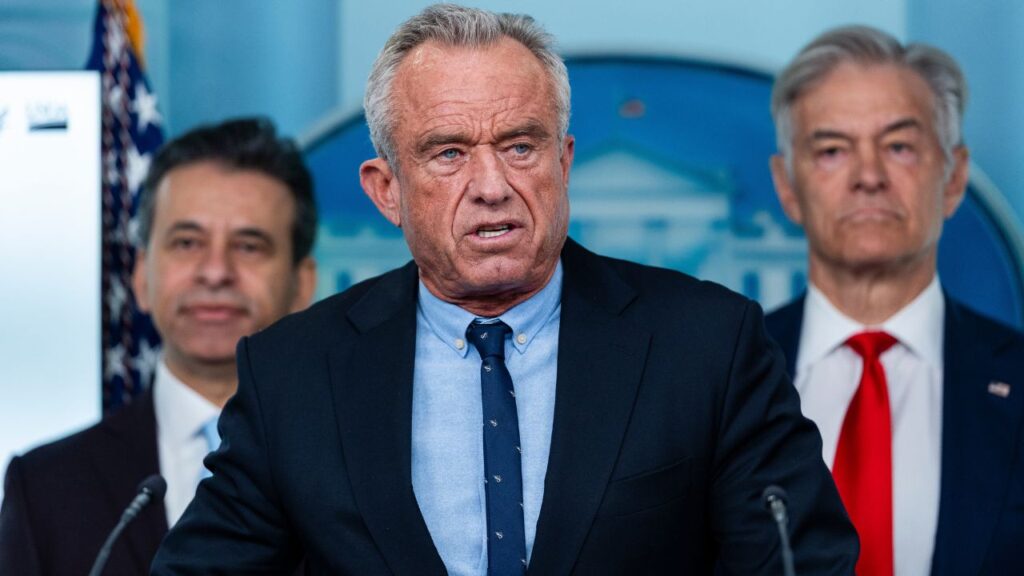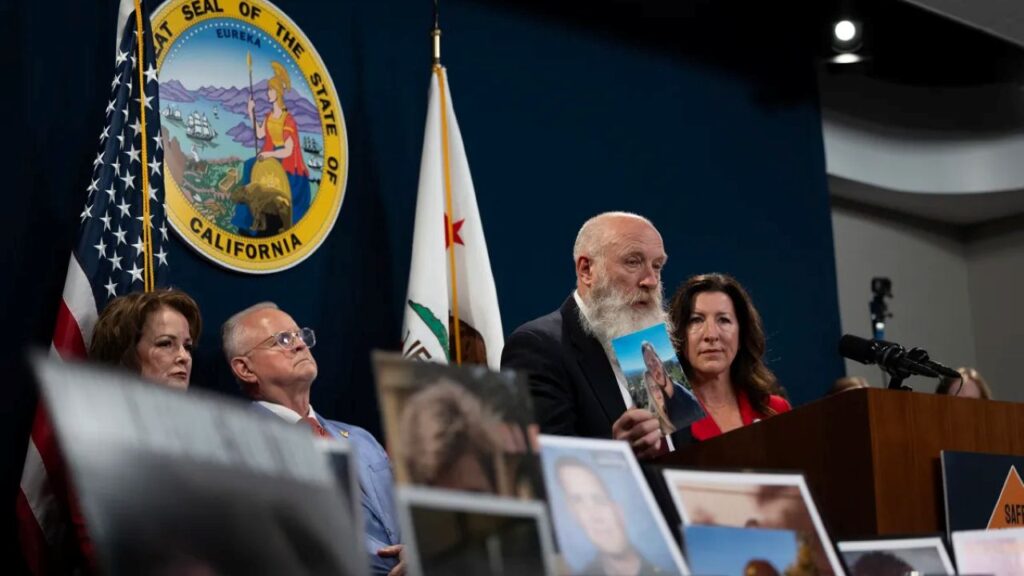Federal actions under President Trump create significant challenges for San Joaquin Valley health clinics serving vulnerable populations. (Central Valley Journalism Collaborative/Marijke Rowland)

- Potential Medicaid cuts threaten funding for nearly 340 Valley clinics serving low-income and uninsured residents.
- Trump's immigration policies and enforcement actions instill fear in patients, potentially deterring needed care.
- Clinic operators navigate conflicting federal directives regarding care for migrant workers and undocumented individuals.
Share
Hundreds of health clinics throughout the San Joaquin Valley that receive federal funds to provide care for low-income people are confronting multiple concerns as a result of potential cuts to Medicaid, patient fears over immigration crackdowns, and the effects of executive orders from the Trump administration.

Tim Sheehan
Central Valley Journalism Collaborative
For example, a week after President Trump took office in January, the administration threw nonprofits and other providers into turmoil with a federal freeze on grants, loans and other money that had already been awarded. Then the White House rescinded the order a day later after a federal judge blocked it.
“We, like everyone right now, have a lot of concerns and unknowns, and that’s probably the worst part about it, is we just don’t know what’s happening from day to day,” said Justin Preas, CEO of United Health Centers. That includes what he described as the initial “shock and awe” of the administration’s aborted freeze on grants.
The looming federal funding cuts could have devastating impacts on health clinics, and the people they serve, across the Valley.
Eleven different nonprofit organizations operate almost 340 clinics or service locations across the region, including a number of mobile clinic sites. Some, like Merced-based Golden Valley Health Centers, United Health Centers of the San Joaquin Valley, headquartered in Fresno, or Visalia-based Family HealthCare Network, operate dozens of sites.
Others, such as Altura Centers for Health, headquartered in Tulare, or Livingston-based Livingston Community Health, have fewer than 12 locations in their respective systems.
Collectively, the various clinic sites provided more than 5 million client appointments for medical, dental, mental health and other services, according to the organizations’ IRS tax forms for the 2022 or 2023 fiscal years. Many of those visits were for patients enrolled in Medi-Cal, California’s version of the federal Medicaid program for low-income residents.
In addition to Medi-Cal reimbursements for the care they provide, clinics also depend, at least in part, on grants from the federal government to care for uninsured people.
Amy Collier Carroll, vice president and chief communication officer for Golden Valley Health Centers, also addressed the uncertainty.
“There has been a lot of conversation about what (potential funding cuts) could look like for us and our patients,” she said. “There’s a lot of speculation about what the administration is thinking, but nobody really knows what may happen.”
Other aspects of the Trump administration’s executive orders, particularly on immigration, and prospects for deep cuts to Medicaid by a Republican-controlled Congress, are also causing providers to worry.
Related Story: Trump’s Budget Plan Puts David Valadao on the Medi-Cal Hot Seat
Potential Impacts on Federal Medicaid Funds
A budget resolution by Republicans in the House of Representatives calls for the House Energy and Commerce Committee – which among other things oversees public health and research, including the Medicaid, Medicare and Children’s Health Insurance Programs – to find ways to reduce the federal budget deficit by at least $880 billion over the next 10 years. Such cuts are widely seen by analysts as requiring significant cuts to Medicaid.
But the House GOP resolution, which asks for a total of $6.3 trillion in deficit reductions and was adopted by a narrow 217-215 vote last month, is far from a done deal.
Medicare, which provides health coverage for senior citizens, represents about 15% of the federal budget, according to KFF, a nonprofit health policy, research, polling and news organization, while Medicaid amounts to about 8.6%.
Clinic operators, who rely on government reimbursements from Medicaid and Medicare, say they’re preparing to find ways to forge ahead even if such programs fall prey to budget cuts.
“We’re familiar with the challenges that come with new leadership at the federal level,” Greg Diederich, CEO of Community Medical Centers, a network of health clinics based in Stockton, said in a prepared statement to CVJC. “As we work to find the way forward in this new environment, the interests of our patients remain at the center of everything we do.”
(The Stockton nonprofit is not to be confused with Fresno-based Community Health System, which operates Community Regional Medical Center in downtown Fresno, Clovis Community Medical Center in Clovis, and other health facilities in Fresno.)
Preas said United Health Centers has reached out to House representatives in the region, including Rep. David Valadao, R-Hanford, and Rep. Vince Fong, R-Bakersfield, who have given assurances that Medicaid and Medi-Cal won’t be cut.
“So we’re hearing that it’s going to be safe, but the math doesn’t add up,” Preas said. “There’s no way they can get $880 billion without touching the Medi-Cal program. …The federal government is saying they’re going after fraud and abuse and all these other things, but that just doesn’t add up.”
Additionally, California is confronting its own fiscal concerns that potentially could affect the state’s share of the Medi-Cal budget, Preas said. “So yeah, we’re very scared.”
Preas estimated that about 60% of United Health’s 180,000 clients are on Medi-Cal.
Clinic executives said their services provide cost savings for the Medicaid/Medi-Cal program by keeping patients out of more costly care at hospital emergency departments – facilities that, in the Valley, are already overburdened.
“Medicaid care is one of the things we do, and providing care for the indigent population and people who can’t afford primary insurance,” Golden Valley’s Collier Carroll said. “We save the Medicaid system a lot of money by diverting people from emergency rooms.
“We provide care for people that don’t have any other options in many cases,” she added. “It would be disastrous if our funding was cut.”
Preas pointed to a long history of bipartisan support for Medicaid and the Federally Qualified Health Center program.
“We’ve demonstrated time and time again that we are a model of care, especially for primary care, which is where the greatest savings are in health care,” he said. “We’ve been able to do it more efficiently and provide so many things to people that can’t be provided in other settings.”
But Medicaid is just one source of consternation, he added.
“On top of that,” he said, “we have the immigration things that are happening now.”
Related Story: Raid Or Rumor? Reports Of Immigrations Sweeps Are Warping Life In CA’s ...
How the Immigration Debate Is Affecting Clinics
Considerable uncertainty hovers over aspects of the Trump administration’s immigration efforts, from an executive order barring taxpayer-funded benefits for undocumented immigrants to rescinding a policy that largely prevented federal immigration agents from conducting enforcement activities, including arrests or detentions, at healthcare facilities, churches, schools and other “sensitive” locations.
President Trump’s fiery rhetoric and strident promises for mass deportations, his executive orders and much-publicized immigration crackdowns are creating a sense of fear – not only for clinics, but for their clients, at least a portion of whom are presumed to be undocumented.
“Patients are scared to death … and there’s good reason for it,” Preas said.
Within days of the president taking office, Preas said, federal Immigration and Customs Enforcement agents showed up in uniform at United Health Centers’ clinic in Dinuba “and came into the health center … looking for one specific individual.” As it turned out, Preas said, ICE officers were at the wrong location to find whomever they were looking for.
But news of the visit blew up on social media, fueling a firestorm of misinformation and what Preas described as “fearmongering,” with false assertions that ICE was making arrests in the parking lot and raiding other clinics.
“It’s almost impossible to combat that because it just spreads like fire, you know,” he said.
”Once all of this ramped up under the new administration, the patients became very scared, and ICE was out there,” he added. “We have objective things that have happened where patients have not come in for appointments, and they’ve foregone treatment and coming in for things they needed because they were scared.”
It’s a similar situation at Golden Valley Health’s clinics in Merced, Stanislaus and San Joaquin counties, Collier Carroll said.
“We understand some of our patients are fearful of what to expect from the administration because of all of the talk about immigration, and they may be worried about their status,” she said. “We have heard from patients that they are worried about coming to the clinic.”
Clinic operators are reassuring patients that they are doing what they can to protect their privacy, including information about immigration status, “and encouraging them to continue to get the care they need,” Collier Carroll said. And for patients who are fearful of coming into a clinic, virtual visits and telehealth calls are often available.
Further complicating the ability of clinics to treat their patients is President Trump’s Feb. 19 executive order “to ensure, to the maximum extent permitted by law, that no taxpayer-funded benefits go to unqualified aliens.”
In the order, the president asserted the goal is “to prevent taxpayer resources from acting as a magnet and fueling illegal immigration.”
In practice, the order could have the effect of erasing at least some federal funds to clinics and other organizations that provide services to undocumented immigrants. It conceivably conflicts with current federal grant funding already awarded to federally qualified health centers specifically to serve migrant workers. California last year expanded Medi-Cal to include coverage for undocumented immigrants.
“That’s the quandary that we have here, is that we have federal dollars that are given to us to take care of uninsured people, but … the larger portion of that money that we receive every year is for migrant and seasonal farm workers, basically migrant people,” Preas said. “But then an executive order comes out, which is not law, … that says we shouldn’t be providing things to undocumented people.”
“We have the federal government telling us, ‘We want you to take care of migrant people, but don’t take care of them,’” Preas added. “So that’s the uncertainty that we have right now. This is the world that we’re living in, and it’s very challenging to navigate all that.”
About the Author
Tim Sheehan is the Health Care Reporting Fellow at the nonprofit Central Valley Journalism Collaborative. The fellowship is supported by a grant from the Fresno State Institute for Media and Public Trust. Contact Sheehan at tim@cvlocaljournalism.org.



















